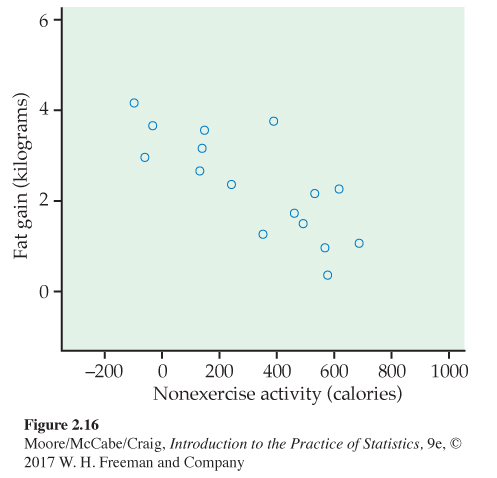EXAMPLE 2.19
Fidgeting and fat gain. Does fidgeting keep you slim? Some people don’t gain weight even when they overeat. Perhaps fidgeting and other “nonexercise activity” (NEA) explains why—the body might spontaneously increase nonexercise activity when fed more. Researchers deliberately overfed 16 healthy young adults for eight weeks. They measured fat gain (in kilograms) and, as an explanatory variable, increase in energy use (in calories) from activity other than deliberate exercise—fidgeting, daily living, and the like. Here are the data:17
Page 108
| NEA increase (cal) | −94 | −57 | −29 | 135 | 143 | 151 | 245 | 355 |
| Fat gain (kg) | 4.2 | 3.0 | 3.7 | 2.7 | 3.2 | 3.6 | 2.4 | 1.3 |
| NEA increase (cal) | 392 | 473 | 486 | 535 | 571 | 580 | 620 | 690 |
| Fat gain (kg) | 3.8 | 1.7 | 1.6 | 2.2 | 1.0 | 0.4 | 2.3 | 1.1 |
Figure 2.16 is a scatterplot of these data. The plot shows a moderately strong negative linear association with no outliers. The correlation is r = −0.7786. People with larger increases in nonexercise activity do indeed gain less fat. A line drawn through the points will describe the overall pattern well.
